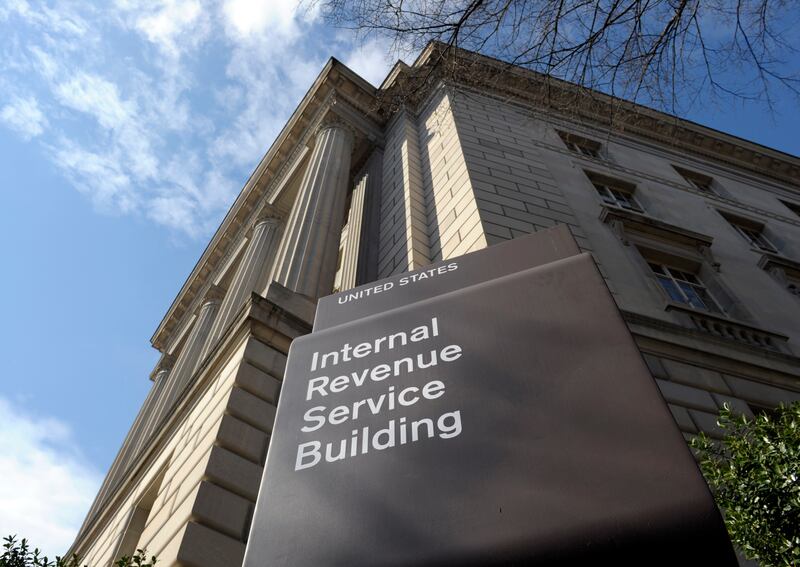If you’ve got a question for the IRS or you still haven’t seen your tax refund — maybe even from 2020 — get in line.
The Internal Revenue Service has seen its workforce shrink by 17% since 2020, while its workload has reportedly grown by 19%. The much-maligned agency has fallen a bit behind.
Deputy Treasury Department Secretary Wally Adeyemo recently told NPR about some of the ongoing struggles the agency’s had. “Last year, the IRS received 230 million phone calls and only had 15,000 people to answer those calls, which meant that each person had to answer 16,000 calls.”
The Washington Examiner said the IRS is pushing for $80 billion in funding to more than double its workforce and improve its efforts to catch tax cheats. The House has approved the proposal, but the Senate is balking.
If you’re tempted to brush off the challenges the IRS faces as unimportant, it might help to consider the ways that the tax-collecting, refunds-disbursing agency helps families and communities flourish.
“The dysfunction matters not only because ‘taxes are the lifeblood of government,’ as a Supreme Court justice famously wrote in 1935, but also because the IRS administers benefits in the form of tax credits that are especially vital for Americans who are struggling financially amid historic inflation and the ongoing pandemic,” wrote Orion Donovan-Smith for the Spokesman-Review. “Families who received monthly payments of up to $300 per child in the second half of 2021, for instance, can’t get the other half of that child tax credit until their tax returns are processed.”
Among other reasons families should care that the IRS works as intended:
- The United States cannot run a functioning government without the IRS, according to The Washington Post, which deems the taxes collected crucial to funding government operations. “Without the IRS collecting taxes and enforcing the tax code, the U.S. federal government would very quickly collapse into total dysfunction,” the article noted.
No taxpayer dollars means no federal jobs, no community block grant pass-through money, a reduction in public health spending, less Alzheimer’s and cancer research, and no camping and playing in national parks, among millions of others taxpayer-funded things that are largely taken for granted.
- Research from the University of Maryland and New York University published in The Washington Post suggests you can appeal to different partisan interests to gain support for funding the IRS. For Democrats, the message could be the role the IRS plays in reducing inequality. For Republicans, the message could center on how the IRS helps reduce federal budget deficits. “One estimate suggested that improved tax enforcement could have eliminated about three-quarters of the 2019 federal budget shortfall,” the Post noted.
- Support for Ukraine in the form of sanctions relies in part on a robust IRS. Most of the sanctions against Russia, Russian oligarchs and others are determined by the Treasury Department. But it is specifically the IRS investigation arm’s “expertise in complicated money laundering and tax evasion schemes“ that gives the federal government the skills to enforce sanctions, according to CNN. And polls show that matters to many American families.
- Some of the direct aid paid to families during the COVID-19 pandemic hit citizens’ wallets by way of the IRS. That agency processes not just tax refunds, but the child tax credit (including the expanded version that was paid monthly directly to families during the last half of 2021) and the earned income tax credit. Other direct aid requires tax returns to determine one’s economic eligibility, including certain forms of student aid for college students.
Dimensions of the crisis
As of April 18, the 2021 tax filing deadline, the IRS had received more than 130 million tax returns, had collected 95% of the revenue it would receive to fund the U.S. government, and paid out more than $220 billion in refunds and credits, according to Natasha Sarin, counselor for the Department of Treasury tax policy and implementation, in a Treasury report.
She called the just-ended tax deadline “an inflection point in what has been the agency’s most challenging filing season in recent history.”
The pandemic and IRS underfunding have created massive challenges, she said.
The agency is pushing for $80 billion in funding over the next decade — a request funded in Biden’s “Build Back Better” plan, which passed the House and is stalled in the Senate, perhaps permanently. The administration said the investment would yield $700 billion in revenue over the 10 years in the form of collected taxes that are currently not being paid, according to the Washington Examiner.
Among the IRS challenges, tax season began with the agency still dealing with a backlog of 20 million tax returns from the previous year, The New York Times reported, noting complaints of “antiquated” technology.
“Ours is a tax system that takes the average American 13 hours to file. It is a tax system with a gap between what is owed and what is collected that is estimated to be $600 billion annually — roughly 3% of GDP on an annualized basis, with more than 30% of these unpaid obligations accruing to the wealthiest 1%. It is a tax system where ripped paper returns are literally pieced together with scotch tape,” Sarin said.
The IRS says it’s done yeoman’s work so far this tax season, processing nearly 100 million of the 103 million tax returns it has received, even though its computer system is half a century old.
Adeyemo told NPR one important reason the IRS needs more money is to make it easier for low- and middle-income Americans who have uncomplicated taxes to file for free and to speed up the processing so folks get their refunds more quickly.


